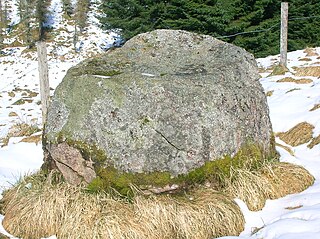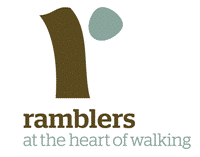 W
WThe Cabinet Secretary for Rural Economy and Tourism is a position in the Scottish Government Cabinet. The Cabinet Secretary is responsible for rural Scotland, tourism, Highlands and Islands Enterprise, agriculture, forestry, fisheries, aquaculture, food and drink, and crofting. The Cabinet Secretary was assisted by the Minister for Environment, Climate Change and Land Reform until 2016, when that role was given its own Cabinet level post. The Cabinet Secretary is assisted by the Minister for Rural Affairs and the Natural Environment, who also reports to the Cabinet Secretary for Environment, Climate Change and Land Reform.
Cowal is a peninsula in Argyll and Bute, in the west of Scotland, that extends into the Firth of Clyde.
 W
WDevon Way is a pathway in Clackmannanshire, Central Scotland. It lies on the southern section of the former Devon Valley Railway from Dollar to Tillicoultry a distance of 3 1⁄4 miles (5.2 km). It is used by for walkers, cyclists and horse riders and forms part of Route 767 on the National Cycle Network.
 W
WThe name gowk stane has been applied to certain standing stones and glacial erratics in Scotland, often found in prominent geographical situations. Other spelling variants, such as gowke, gouk, gouke, goilk, goik, gok, goke, gook are found.
 W
WThe John Muir Trust (JMT) is a Scottish charity, established in 1983 to conserve wild land and wild places for the benefit of all. The Trust runs an environmental award scheme, manages several estates, mainly in the Highlands and Islands of Scotland and campaigns for better protection of wild land. In 2017, it took on a lease to manage Glenridding Common in the English Lake District.
 W
WThe Land Reform (Scotland) Act 2003 is an Act of the Scottish Parliament which establishes statutory public rights of access to land and makes provisions under which bodies representing rural and crofting communities may buy land.
 W
WLoch is the Irish, Scottish Gaelic and Scots word for a lake or for a sea inlet. It is cognate with the Manx lough, Cornish logh, and one of the Welsh words for lake, llwch.
 W
WNational scenic area (NSA) is a conservation designation used in Scotland, and administered by NatureScot. The designation's purpose is to identify areas of exceptional scenery and to protect them from inappropriate development. There are currently 40 national scenic areas (NSAs) in Scotland, covering 13% of the land area of Scotland. The areas protected by the designation are considered to represent the type of scenic beauty "popularly associated with Scotland and for which it is renowned". As such they tend to be mainly found in the remote, mountainous areas of Scotland, with a review in 1997 noting a potential weakness of national scenic areas was that the original selection placed undue emphasis on the mountainous parts of Scotland. National scenic areas do however also cover seascapes, with approximately 26% of the total area protected by the designation being marine. The designation is primarily concerned with scenic qualities, although designated national scenic areas may well have other special qualities, for example related to culture, history, archaeology, geology or wildlife. Areas with such qualities may be protected by other designations that overlap with the NSA designation.
 W
WThe Protection of Wild Mammals (Scotland) Act is an Act of the Scottish Parliament passed in February 2002, making Scotland the first part of the United Kingdom to ban traditional fox hunting and hare coursing.
 W
WThe Ramblers is Great Britain’s leading walking charity, celebrating the pleasures of walking and protecting the places people love to walk. The Ramblers is also a membership organisation with around 100,000 members and a network of volunteers who maintain and protect the path network. They believe everyone, everywhere should be able to experience the joy of walking and have access to green spaces to walk close to home.
 W
WRegisters of Scotland (RoS) is the non-ministerial department of the Scottish Government responsible for compiling and maintaining records relating to property and other legal documents. They currently maintain 20 public registers. The official responsible with maintaining the Registers of Scotland is the Keeper of the Registers of Scotland. By ex officio, the Keeper of the Registers of Scotland is also the Deputy Keeper of the Great Seal of Scotland. The Keeper of the Registers of Scotland should not be confused with the Keeper of the Records of Scotland.
 W
WThe Scottish Wildlife Trust is a registered charity dedicated to conserving the wildlife and natural environment of Scotland.